Don't get me wrong — there are many great things about living in America. From the little things like "birthday cake" being considered a flavor to the big stuff like free speech, there's a lot to like.
But when it comes to our culture surrounding work and money, let's just say there's room for improvement. So I asked members of the BuzzFeed Community who aren't from America to share the things about work and money here that shocked or surprised them. Here's some of what they said:
1. "Credit scores. I am Australian, and I recently got a bunch of emails for an American lady who'd used my email for a credit assessment. This is information that I've never needed to provide, even when applying for a mortgage. A younger colleague is building herself a house, and I'm pretty sure she didn't need to provide this information either."

FYI, in the US, our credit scores and reports get looked at in a variety of situations, including applying for a loan, renting an apartment, and even certain job applications. Though credit scoring might feel like a fact of life for Americans, we've actually only been using our current FICO scoring model since 1989.
But there are other countries that don't use credit scores at all, including Japan, France, and the Netherlands. Instead, these countries base lending decisions on factors like your income, employment, and whether you have any past delinquent debts.

2. "I work in tax in the UK, and it baffles me that all Americans have to complete tax returns. In the UK, our salaries and employment benefits are taxed at the source, so most people will never have to complete a tax return if they only have employment income. We also pay national insurance, which goes toward our state pension (the pension paid out by the government when we retire) and other state benefits."
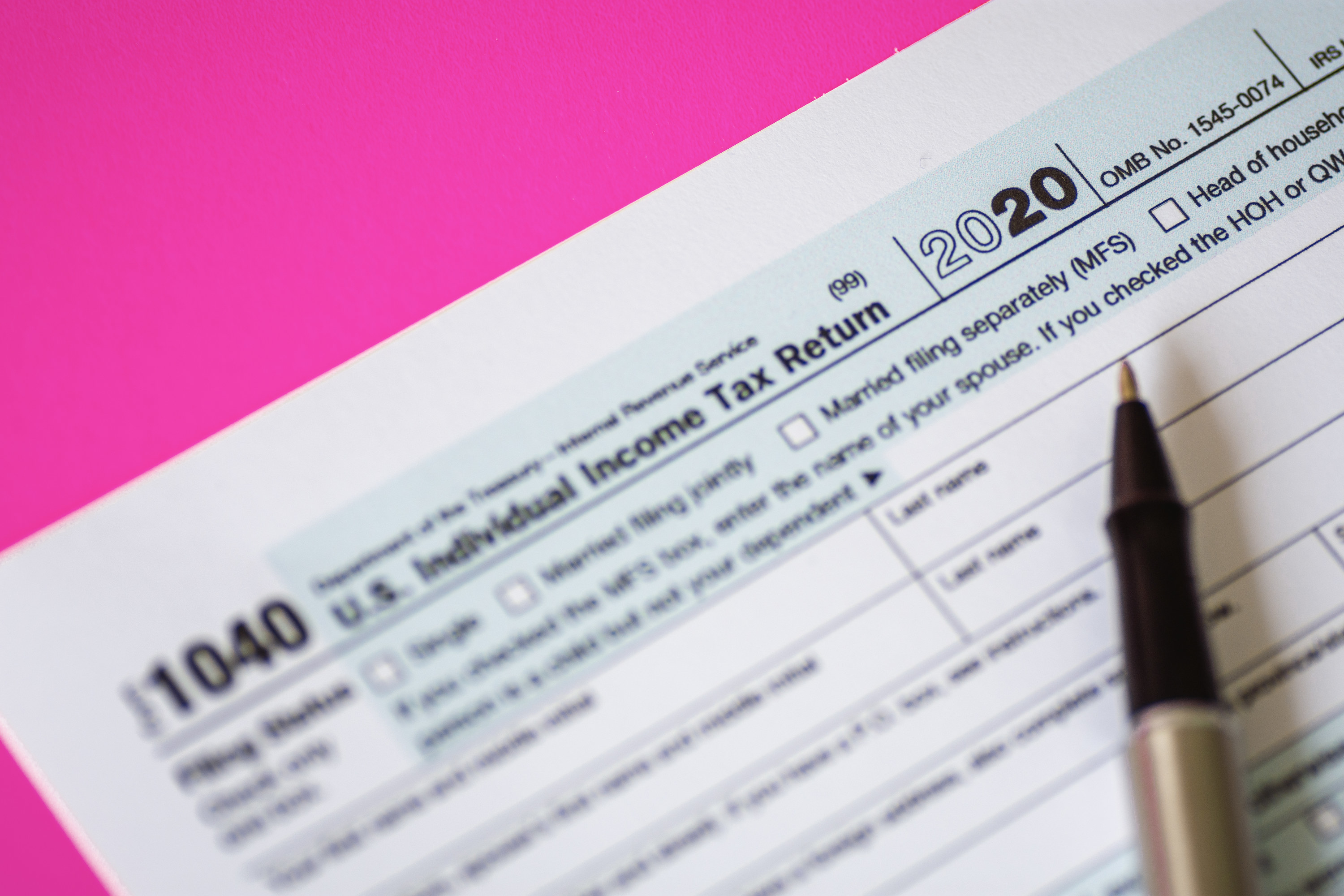
FYI, in the US, taxes get withheld from your paycheck when you work as an employee. Then each year, you need to spend at least an hour or two or more filing your taxes to make sure that the right amount was taken out. But many other countries do something called "return-free filing," which makes the process. So. Much. Simpler.
In countries that do return-free filing, taxpayers only need to file in specific situations, such as if their tax status changed or they have multiple sources of income. For many people, doing their taxes is as simple as checking to make sure that the numbers on a form are correct, signing it, and sending it back.

There have been proposals to switch to a return-free filing system in the US, but companies that specialize in tax prep lobbied heavily against them. In addition, many conservatives who oppose raising taxes believe that, as President Ronald Reagan once put it, "Taxes should hurt." The idea being that if paying your taxes is an annoying and difficult process, you're more likely to pay attention to (or even resent) how much money the government takes.

3. "In the US, you can be fired on the spot — even if the company is downsizing. In Ireland, there are redundancy policies and rights. The employer has to pay you X amount AND give you notice, seeing as it is the company's fault you are becoming unemployed. You also can't fire someone on the spot unless they break their contract."

FYI, American jobs (with some exceptions) are typically considered at-will employment. This means that employers can fire us at any time and for any reason, as long as it's not illegal or discriminatory. It's super fun (JK, it's not). At-will employment also gives workers the right to quit any time for any reason we want.
In most other countries, however, it's a lot harder to fire someone. In Europe, for example, businesses need to have a good or just cause for termination, and they also have to give employees with performance issues more training and chances before letting them go. In addition, employers have to give workers a notice period before a firing, and they may also be required to pay a severance.

4. "How expensive an ambulance is! It's paid for in taxes, but free at the point of use in the UK."

It's no secret that riding in an American ambulance will cost you. But the price can really vary depending on where you live and if your insurance will cover it. The pricing can be so variable that it's actually tricky to even talk about average costs. Anecdotally, Americans have reported being charged anywhere from $3,000 to $8,000 for an ambulance ride.
5. "I don't get why sales tax isn't shown in shops. Here, you pay the price that you see."

The reason sales tax is often not included in prices in the US is that these taxes vary depending on local and state regulations. Sales tax is different not just state to state but even city to city. So for items, like books, that print prices on the label, it would be really impractical to print so many different versions of the price. Plus, in some states, retailers actually aren't allowed to include tax in their prices at all.
6. "I can't believe how low minimum wage is."

The federal minimum wage in the United States is $7.25 an hour — and it hasn't budged a cent since 2009. This stagnation would be unthinkable in many other countries. According to the Pew Research Center, in 80 other countries around the world, the government is required to review and adjust the minimum wage every year or every couple of years.
According to data from 2020, 14 countries have a higher minimum wage than the United States, including South Korea, Canada, and Australia. Luxembourg topped the list with a minimum wage equal to about $13.79 in US dollars.
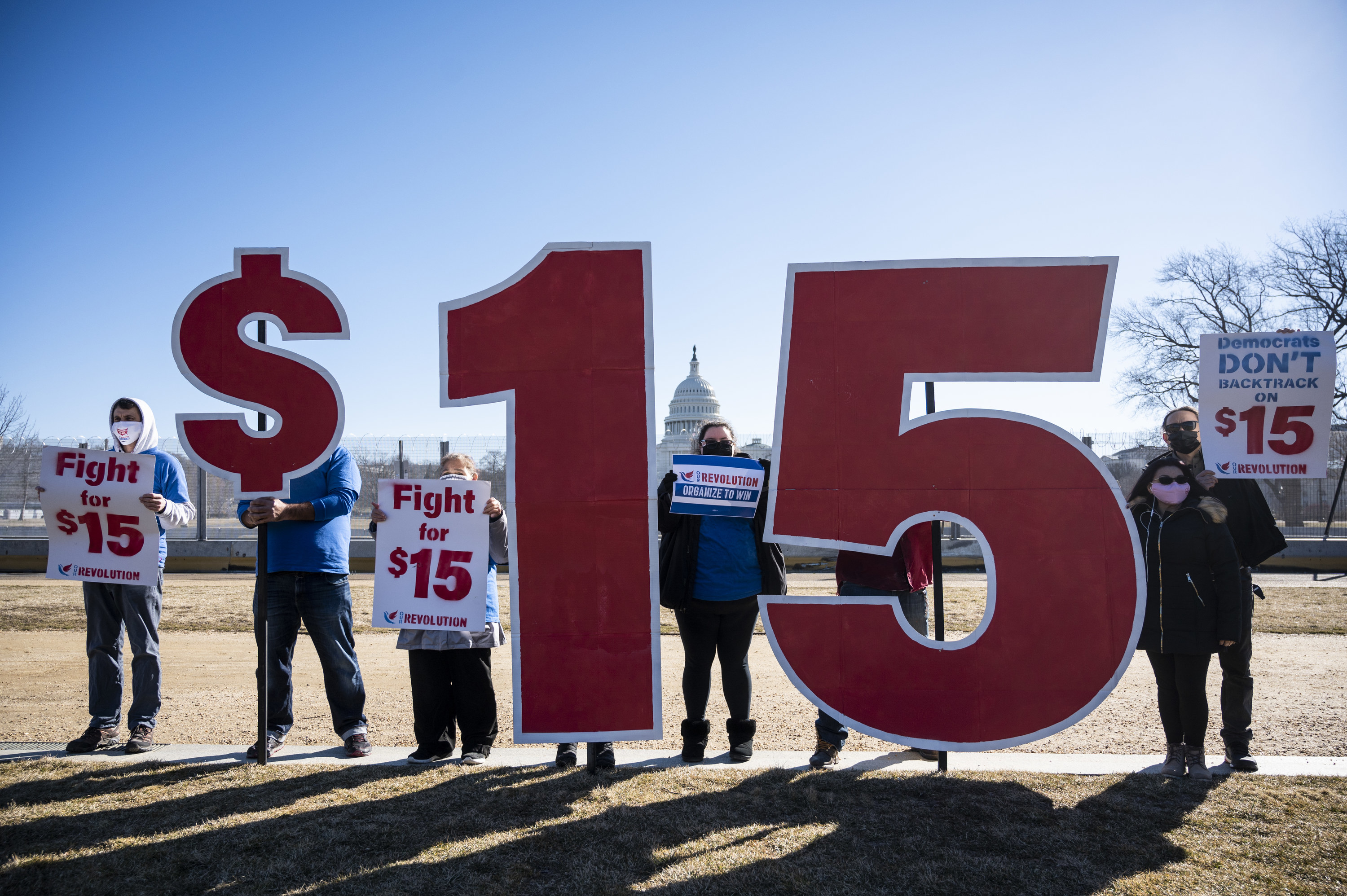
7. "Your paper money is indistinguishable from one note to the other. Every single other country on the planet for a long time now has made paper money different lengths, or includes a braille system so blind people can identify which note is which. I can’t understand why the USA in 2022 is still the only country in the whole world not to do this."
As an American who hasn't been out of the country very much, I'm embarrassed to admit that I never knew this! And it's really incredible to learn about the steps other countries have taken to make their currency accessible. For example, the euro was actually designed with input from organizations for the blind and has features like relief printing and different-size bills.
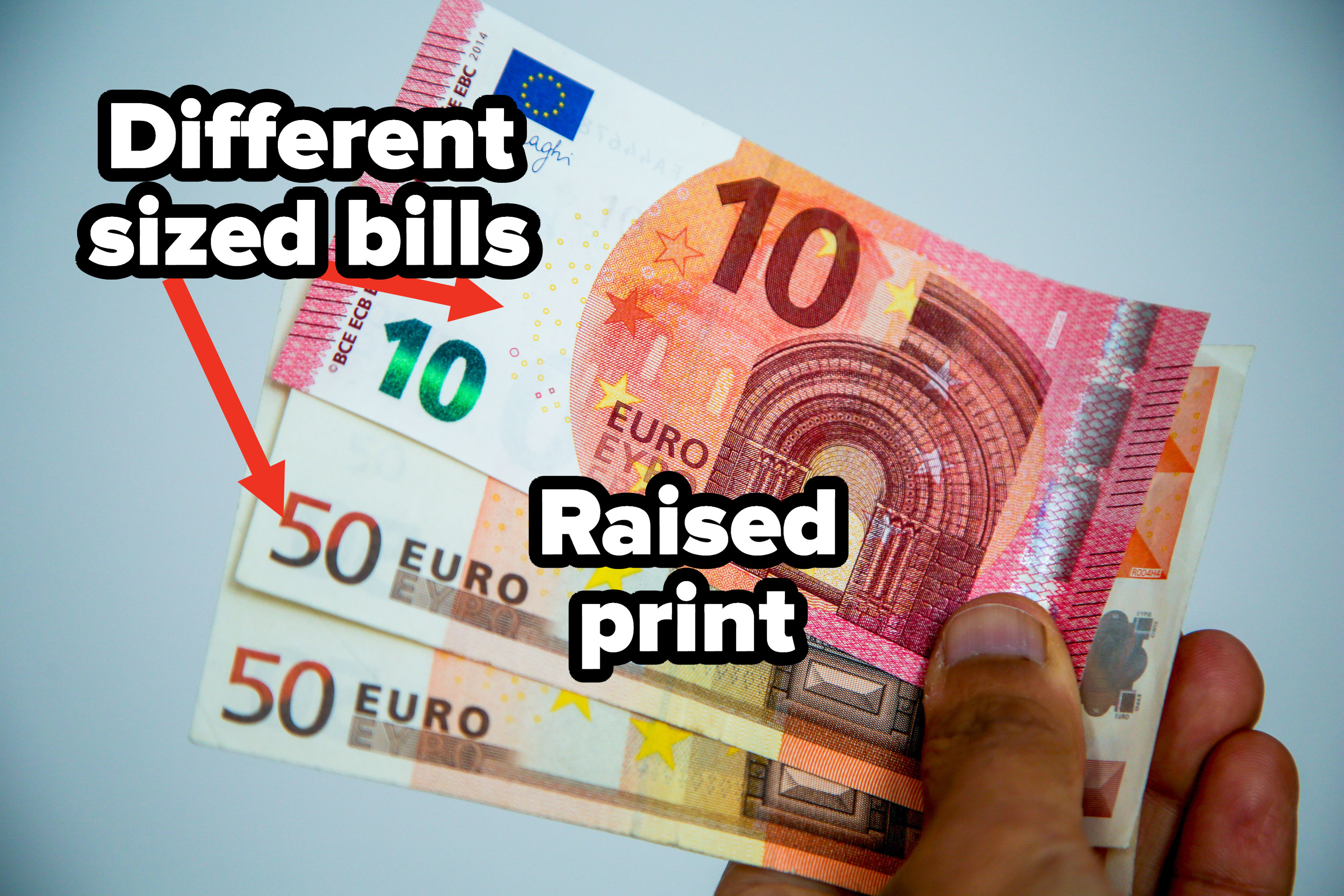
In Canada, bills have tactile bumps on the upper right corner so they can be identified.
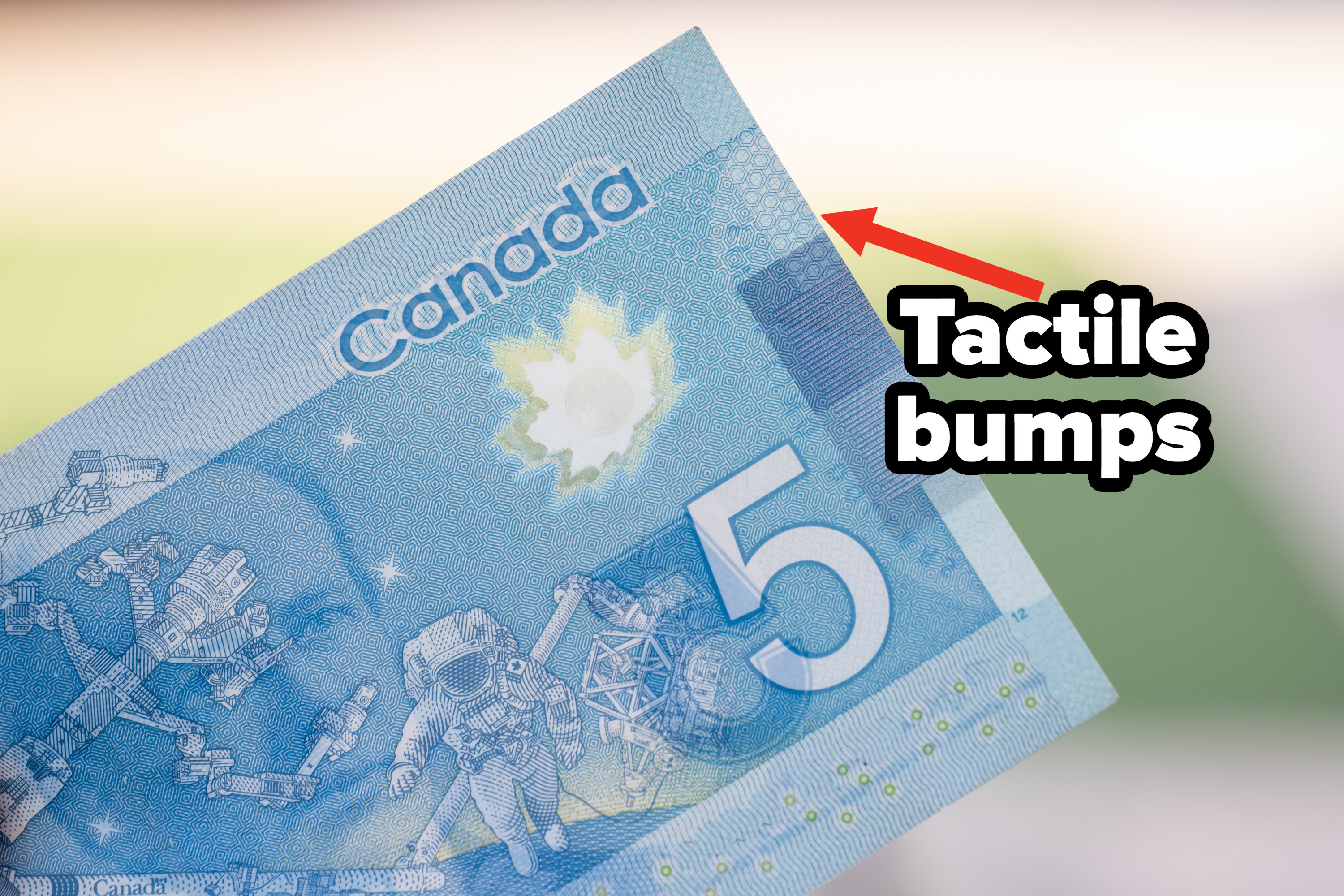
And Swiss francs have texture on the numbers so you can feel the amount of the bill.

Since US money doesn't have tactile features, people who are blind or visually impaired used to have to use workarounds like folding their bills strategically so they could recognize them by touch, or carrying wallets with different compartments to keep their bills separated. In more recent years, currency readers have been developed. These devices scan money and read the amount out loud to the user. There are also apps like EyeNote that can do the same thing using your phone's camera.

8. "That it is somehow beneficial to use credit cards. Or better yet: that you HAVE to use a credit card in order to have a decent credit score. In fact, if you never owed anything, you get worse conditions if you ever do need a loan."

Using credit is a big part of building your all-important credit score in the US. Making on-time payments, keeping accounts open for long periods of time, and having a mix of credit accounts are all habits that can raise your score. Given how important our credit scores are, it's no surprise that the US leads the world in credit card use. BTW, if you could use a primer on all things credit card related, it's right here.
9. "I always thought lemonade stands and Girl Scout cookies were made up for TV, but apparently it’s normal for little kids to basically become door-to-door salespeople?!? And no one calls social services?!"

Folks, I hate to break it to you, but in most of the US, kid-run lemonade stands are actually illegal — but not because of child labor laws. In all but 14 states, running an unpermitted lemonade stand is against the law. Children as young as 5 years old have received citations for selling the sour yellow beverage. The whole situation is so wild that the lemonade brand Country Time has even set up a "Legal Ade" site urging lawmakers to "legalize lemonade." For comparison, 18 states have legalized recreational marijuana.
10. "Canadian now living in the USA. The lack of parental leave is so sad. I don’t even have kids, and it breaks my heart to see friends have to start looking for daycare right after they get pregnant."

In the US, under the Family and Medical Leave Act (FMLA), workers can take off up to 12 weeks in a 12-month period to care for a new child. But many don't take their full leave because FMLA leave is unpaid and there are barriers to accessing it. First, FMLA applies only to companies with at least 50 employees, and those workers have to be located within a 75-mile radius. In addition, FMLA doesn't apply if you haven't worked for your employer either for the last 12 months or for at least 1,250 hours.
The US remains one of just six countries in the world that don't provide paid maternity leave. Globally, paid maternity leaves run an average of 29 weeks, and paid paternity averages 16 weeks. The average maternity leave in America runs just 10 weeks.

11. "I’m Canadian. I thought it was standard that people get vacation when they work a full-time job. Most of the jobs I’ve had give you three weeks when you start."

As of 2018, 25% of Americans working for private companies had no paid vacation days at all. The US is the only country where workers aren't guaranteed any paid vacation at all outside of 10 public holidays.
By contrast, Austria leads the world in paid vacation days. Workers are entitled to 25 days of leave and 13 public holidays for a grand total of 38 days of paid time off. BRB, researching Austrian citizenship requirements...
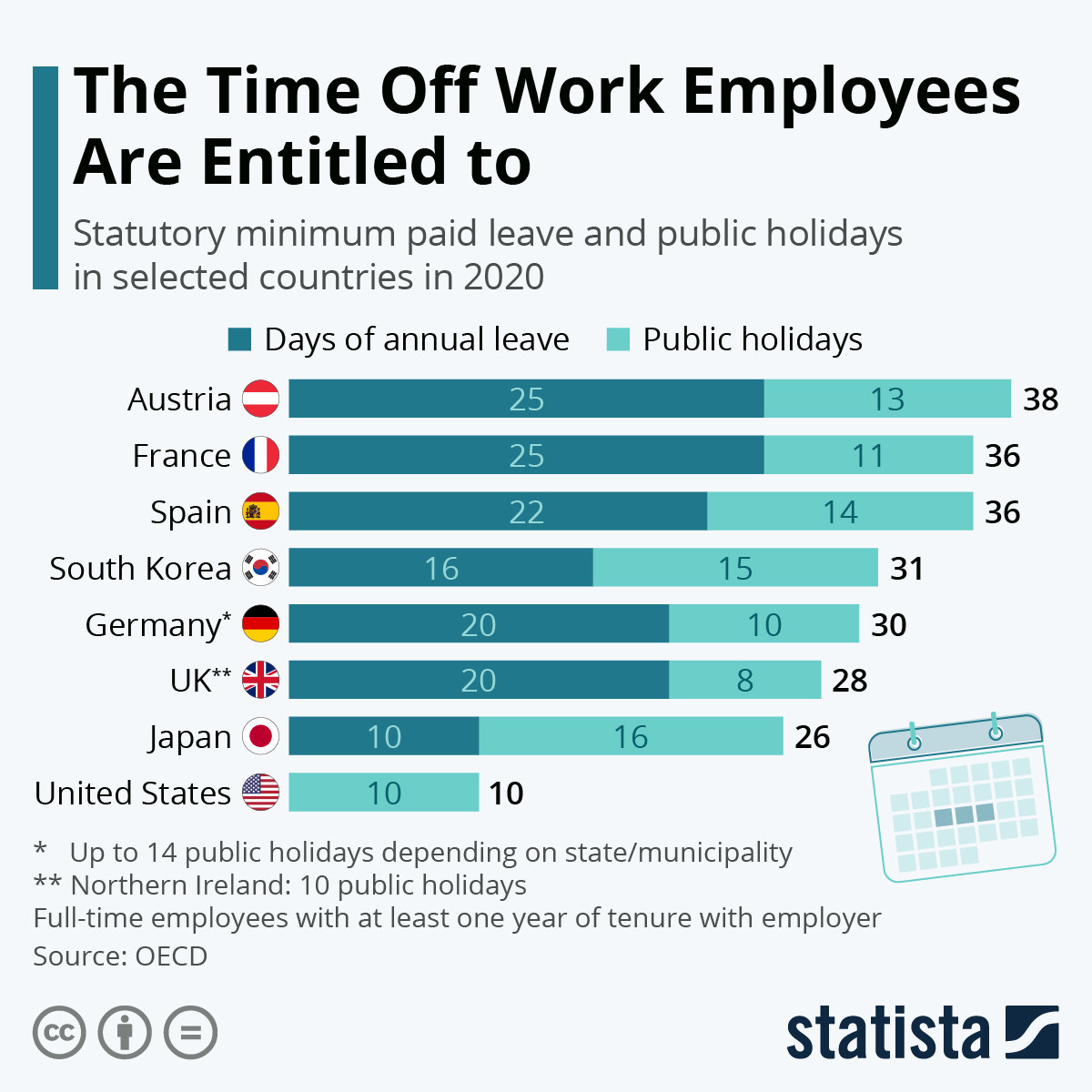
12. "In New Zealand, university tuition is much cheaper, and you aren't charged student loan interest unless you emigrate."

Student loan debt in the US adds up to $1.6 trillion, and the average monthly payment takes $460 out of someone's pocket. This debt can take an average of 20 years to pay off, and seriously holds people back from reaching other financial goals in the meantime.
But in many other countries around the world, higher education is either free or far less expensive. For example, in Denmark, university tuition is covered by taxes, and students who move out of their parents' home get a monthly government stipend to help cover their living costs.

13. And finally: "I'm English, and I don't understand how restaurant and café staff are paid by customers instead of their bosses. Tips should not be wages."

In the US, leaving a tip when you dine out is expected, and people generally agree that 20% of the total is a good tip. In some states, workers who are customarily tipped, like restaurant servers, actually get paid a subminimum wage as low as $2.13 an hour. So to us, tipping is considered not just polite but necessary.

But that's not the standard in the rest of the world. In Europe, for example, tips are mainly given to recognize outstanding service — not as an expected part of dining out. Many Asian countries also generally don't share the same tipping culture as the US, but you might see service charges added on to your dinner bill.
Note: Some submissions have been edited for length and clarity.
Do you know of any more ways that work and money are different around the world? Tell us all about it in the comments.
And for more stories about life and money, check out the rest of our personal finance posts.
